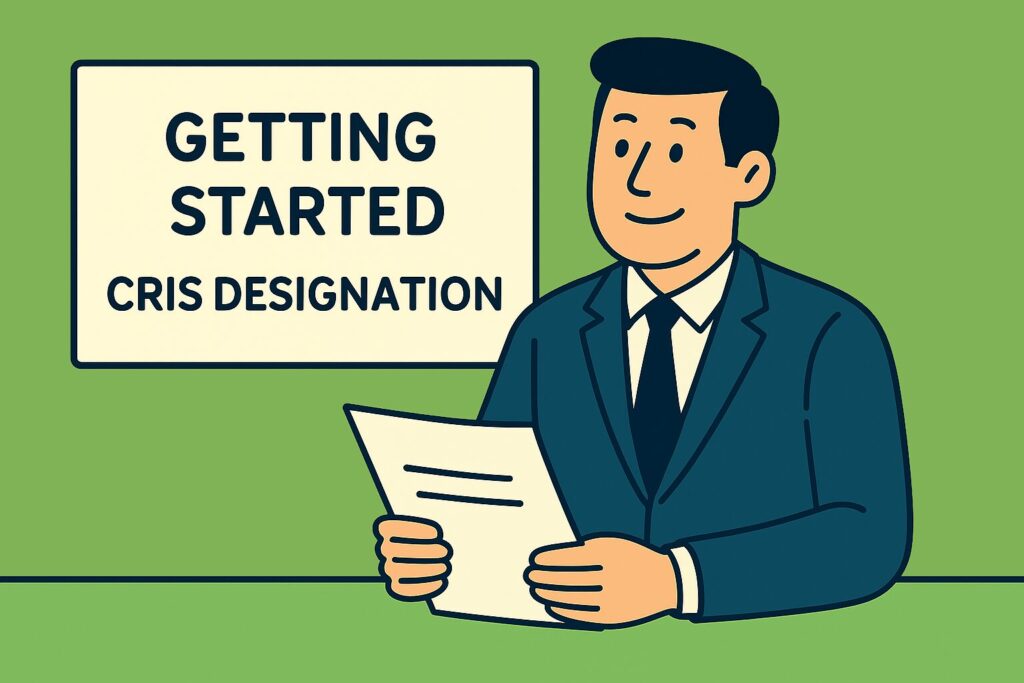Getting Started - CRIS Designation

The Construction Risk and Insurance Specialist (CRIS) designation from the International Risk Management Institute (IRMI) gives insurance professionals specialized skills for handling construction-related risks. Many people wonder, “Is the CRIS designation worth pursuing?” and “What exactly does the IRMI CRIS designation involve?” This guide breaks down the practical benefits and career impact for anyone working in construction risk insurance.
Here’s something interesting: 8 out of 10 construction firms actually prefer working with insurance agents and brokers who have their CRIS certification. That tells you something about how much the industry values this specialized training. The CRIS construction focus really makes a difference when you’re dealing with complex construction projects and construction accounts.
Understanding the CRIS Designation and Its Purpose

So what is CRIS exactly? The Construction Risk and Insurance Specialist designation represents specialized training that sharpens your expertise in construction risk management and insurance practices. When you earn this certification, you’re showing clients and employers that you understand the complex world of construction risks—things like commercial liability, contractual risk transfer, property insurance, workers’ compensation, and the fundamental principles that drive construction-specific insurance.
Professionals with CRIS training can identify potential construction risks before they become problems, develop robust insurance solutions, and manage claims effectively. This directly benefits their clients in the construction industry. The expertise covers everything from commercial auto insurance to surety bonds, giving you a comprehensive toolkit for construction risk insurance.
Why the CRIS Designation Makes Sense for Your Career
The CRIS designation delivers real value for insurance agents and brokers working with contractors and construction businesses. Here’s what you can expect:
You’ll gain enhanced professional credibility that clearly shows your commitment to specialized growth in construction risk management. Clients notice and appreciate certified experts who can tackle their specific industry challenges and provide thorough insurance coverage.
Career advancement often happens faster when you have recognized expertise in construction risk insurance. Many professionals find themselves moving into senior roles more quickly. There’s also the potential for higher income—specialized knowledge typically translates to better earnings, and the CRIS certification salary boost can be substantial.
Perhaps most importantly, you’ll develop advanced risk management skills that give you deeper insights into construction-specific risks. This enhances your productivity and client satisfaction, particularly in areas such as risk assessment and construction safety.
When you hold a CRIS designation, you’re looking at real career advantages, better income opportunities, and stronger relationships with your clients who specialize in construction accounts.
Getting Your CRIS Certification: Step-by-Step

What You Need for the CRIS Credential
Earning your CRIS designation means completing five core training modules that focus specifically on construction risk management:
- Construction Insurance Fundamentals
- Commercial Liability Insurance for Contractors
- Contractual Risk Transfer in Construction
- Property Insurance for Contractors
- Workers Compensation for Contractors
Most candidates come in with some foundational knowledge of general insurance or hands-on experience in construction or insurance. The CRIS training program walks you through various aspects of insurance policies and construction contracts so you’ll build comprehensive insurance expertise.
Investment and Timeline
The CRIS program typically costs less than $1,000, covering your course fees, study materials, and examination costs. Most people complete the program in 6 to 12 months, providing working professionals with the flexibility they need. You’ll start by handling the CRIS login and CRIS purchase process on the IRMI website.
Many employers recognize the strategic value of this certification and offer reimbursement or financial support for the CRIS training and certification courses. It’s worth asking your company about this.
Preparing for Your Exam
The CRIS exam uses multiple-choice questions to test both your theoretical knowledge and practical application skills in construction risk insurance. IRMI provides solid resources, including detailed course manuals, practice exams, and preparation guides. Plan on spending about 6 to 8 weeks per module to ensure you’re thoroughly prepared and ready for each CRIS exam.
Keeping Your Certification Current
Maintaining your CRIS certification requires annual continuing education credits. This keeps you up-to-date with industry trends, regulatory changes, and new risks in construction projects. It’s one of the things that reinforces the long-term value of the designation.
Your Next Steps to Start the CRIS Program
Ready to begin your CRIS journey? Here’s how:
- Register through IRMI’s official website using the CRIS login portal
- Access and review the study materials for CRIS training
- Plan your module completion around your work schedule
- Study systematically for each exam
- Set clear goals to efficiently complete the designation process and handle the CRIS purchase requirements
Other IRMI Insurance Designations Worth Considering

IRMI offers several specialized insurance designations that benefit insurance professionals working in specific sectors:
The Energy Risk and Insurance Specialist (ERIS) serves professionals who deal with risks unique to the energy sector, including oil, gas, and renewable energy.
The Management Liability Insurance Specialist (MLIS) focuses on management-level risk, covering directors and officers liability, employment practices liability, and fiduciary risks.
The Transportation Risk and Insurance Professional (TRIP) is designed for professionals who handle transportation industry risks, such as fleet management, logistics, and transport-specific coverage.
The Agribusiness and Farm Insurance Specialist (AFIS) serves professionals in the agriculture insurance industry, focusing on farm-specific policies and agricultural risk management.
Total CSR also provides specialized certifications, including QEBS, QPLS, QCLS, and PCIA, through its targeted insurance training programs. You can explore more IRMI and Total CSR designations to find what fits your career path.
Combining your CRIS certification with practical, scenario-based training maximizes your competency and effectiveness as an insurance agent or broker. Total CSR’s platform offers comprehensive, hands-on training specifically designed for insurance professionals seeking real-world experience.
What Makes Total CSR’s Platform Stand Out:
Customized learning paths tailored to your specific role and professional goals in construction risk insurance
Compliance automation that ensures all training meets industry regulations and insurance program requirements seamlessly
Soft skill enhancement to improve interpersonal skills and client communication when working with insurance buyers and contractors
Total CSR becomes an essential partner in:
Streamlining onboarding
Supporting professional development
Boosting your team’s operational efficiency
Increasing client satisfaction in managing liability exposures and providing construction-specific insurance solutions
Discover how to elevate your agency’s capabilities and professional growth by exploring Total CSR’s training solutions today.
The construction risk insurance specialist field continues growing, and having your CRIS certificate positions you well for this growth. Understanding CRIS designation requirements from the start helps you plan your professional development effectively. When you combine specialized insurance expertise with practical training, you’re setting yourself up for long-term success in this specialized field. Book a demo today!

